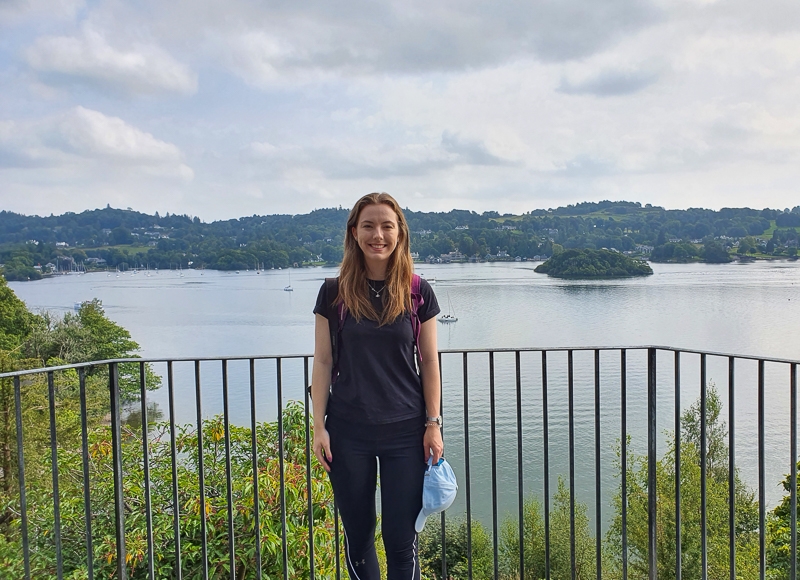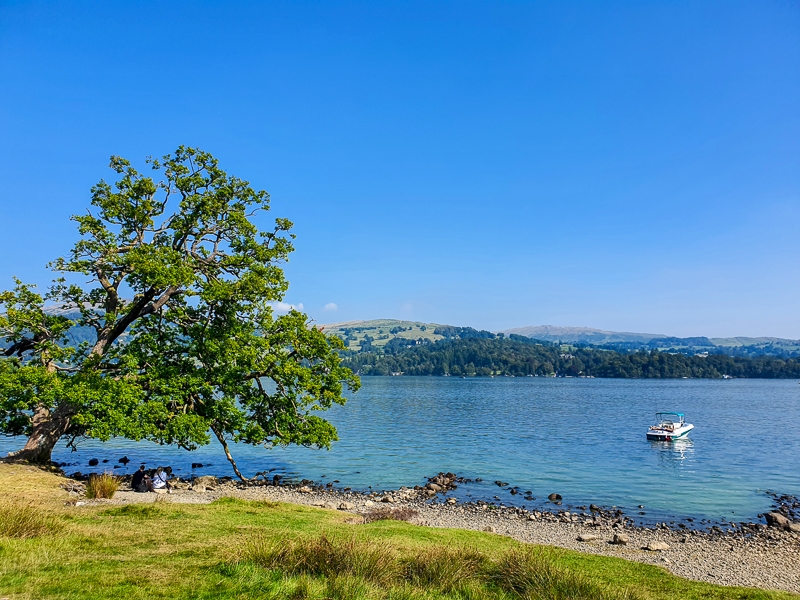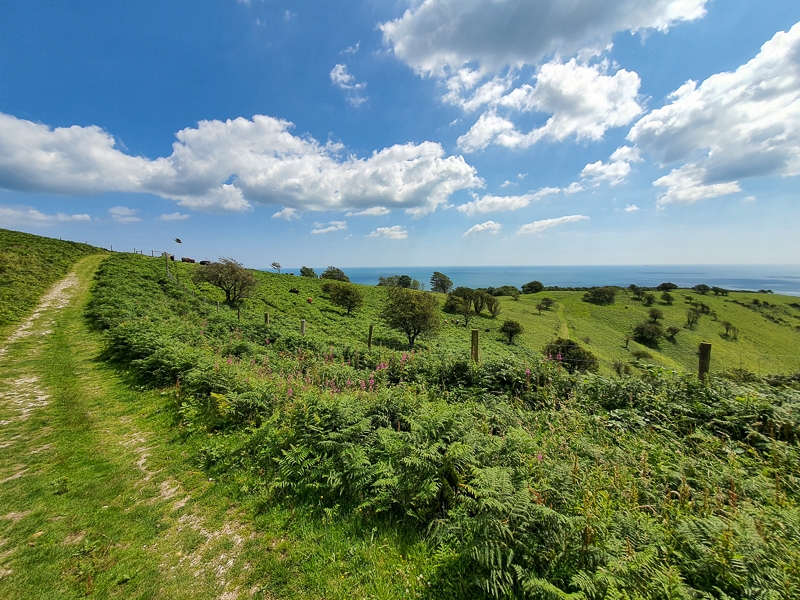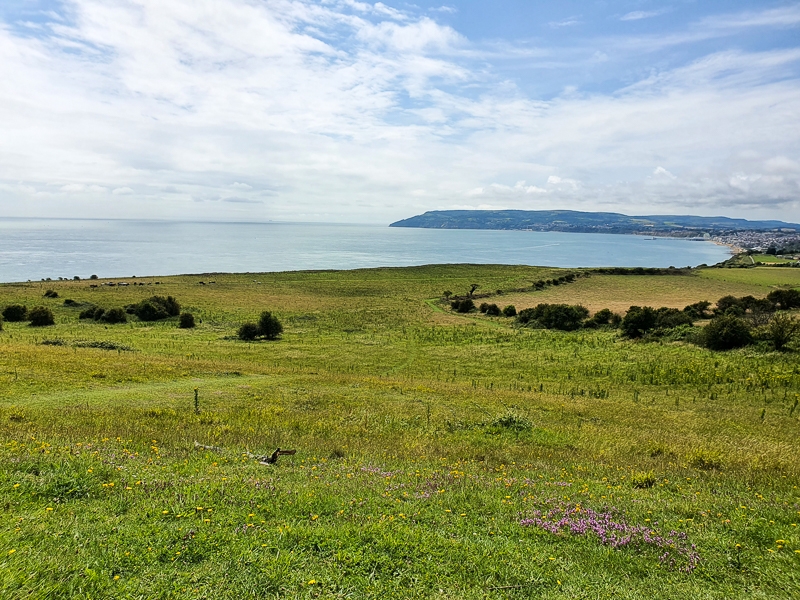10 THINGS I LEARNT IN A YEAR OF WRITING ABOUT THE NATURAL WORLD

Today marks a year since I started writing on Hayulls as a way of sharing my love for the natural world and helping people reconnect with nature. Here are my reflections on some important lessons I've learnt along the way!
1. CONSISTENT CONTENT CREATION IS HARD WORK
I'll get to the feel-good stuff soon, but it's an unavoidable fact that regular content creation is really hard work, and that's why so few people keep it up.
Creating content takes far longer than I could have anticipated before I started Hayulls.
Committing time to wildlife photography to illustrate my posts, reading and researching to inform my writing, drafting articles, proof reading, managing the website, keeping up to date with goings-on in natural history and conservation, publishing posts, being active on social media, looking for opportunities to collaborate, sharing my articles, and engaging with the work of others, alongside dedicating time to personal development, working full-time, and studying part-time is quite a step up from posting something on Insta every few weeks.
Thankfully, I love all of it, which brings me to point two...
2. IT'S ONLY SUSTAINABLE IF YOU LOVE IT
Given the hours of work that go into every post and the time it takes for a content creation venture to become suitable for monetization (if that's your aim) or to achieve the outreach you’re seeking, nobody stands much of a chance unless they truly love creating the content.
I've found it easy to stick at writing about natural history because my motivations for doing so aren't related to monetization, follower count, or engagement performance. I love learning about natural history and sharing what I've learnt, and that alone is enough to keep me motivated.
I have other motivations - like wanting to reconnect people with the natural world - and satisfying those goals furthers my focus, but achieving those goals isn’t the only reason that I write.
So, if you're considering starting a content creation venture, no matter what your aims are, ask yourself if you'd be happy to dedicate the time to creating that content even if nobody else ever saw it. If you’d be happy with that, then you’ll find it much easier to keep it up!

3. PEOPLE ARE MORE INTERESTED IN THE NATURAL WORLD THAN WE GIVE THEM CREDIT FOR
We hear a lot about our growing disconnectedness from nature, and I was apprehensive about whether anyone would be interested in what I had to share.
I find the natural world unbearably interesting, and I know other like-minded people do too - but what about the people I want to connect with the most: people who are less connected to nature?
Despite what we hear, and how very uncool caring about nature used to be when we were in secondary school, people ARE interested in it. I'm so thrilled to have had messages from people not otherwise mad on nature saying they've read and enjoyed my posts - and learnt from them.
As I've started to talk to more people about the natural world, I've realised that most people do care and are interested, but the level of general knowledge on the subject is lower than you might appreciate if you've had your head in books about nature your whole life. Lack of interest isn’t the problem so much as lack of access to engaging information or exposure to the outdoors.
For that reason, breaking down barriers to natural history knowledge (like the use of Latin names) and barriers to connection to nature (like the scientific contempt for anthropomorphism) to allow people to learn about nature in an informal and accessible way is my focus.
4. SAVE FEEDBACK
I'm so grateful to anyone who has ever given me feedback on my writing, and I screenshot every piece of feedback and add them to a folder.
Saving feedback can help you to find motivation, remind you of your purpose, and help you to build and improve.
The folder will also be a useful resource if you're ever unfortunate enough to encounter someone nasty online - it's easier to forget positive or constructive feedback than it is to forget the comments of a troll, so make a record for future reference.
5. PEOPLE AREN'T AS MEAN AS YOU THINK THEY ARE*
*as long as you curate your Twitter.
When I started Hayulls, my biggest fear was that people would be hurtful. It sounds childish, but it's the thing that most holds us back from getting our passions out there: fear of rejection or ridicule.
After a year, I've discovered that most people online are normal people and therefore friendly and kind.
If you encounter someone that isn't kind, responding to their comments in a friendly way usually diffuses the situation; often, what you read as a mean comment is just someone failing to realise how their tone will be interpreted.
Having said that, there are some corners of the Internet where you're likely to get people who are unnecessarily argumentative or unkind, and most of them are on Twitter.
Unless your goal is to engage on controversial issues (which it might be!) I've learnt that it's best to stay away from that breed of Twitter user that only comes online to pick fault and start arguments.

6. PERFECTIONISM IS THE ENEMY OF SUCCESS
Probably the second most cited reason for not publishing our work is perfectionism: not wanting to put anything out there until we're absolutely sure it's our best work.
I've never been a perfectionist, yet when I started writing a year ago, I felt it creeping in. I began to feel overwhelmed at the impossible task of reading everything that has been written on a subject before writing about it, and the first draft of most of my posts ended up looking more like a dissertation than a fun and accessible way to learn.
There's a balance - educational content needs to be accurate, up to date and appropriately referenced - but dropping perfectionism is key to consistently sharing your work.
The way I got over it is by thinking of writers and creators that I respect and whose content I enjoy. When I'm stressing about something, I ask myself whether I'd be disappointed in one of my favourite creators if it was them publishing it and not me.
When we think towards ourselves as we do towards others, we're more compassionate, and that allows us to get posts out the door instead of sitting on them for months.
7. BEING A GENERALIST IS GREAT
There are lots of fantastic creators who are specialists, and when you start out you can end up putting a lot of pressure on yourself to find a niche.
I write lots of different types of articles, on many different topics, to varying degrees of depth.
At first, I worried that this looked like a scattergun approach, or that I'd spread myself too thin. I knew I couldn't appeal to everybody, so which content type and topic should I choose to stick to?
In the end, I chose to keep my creation broad. I am guided by what I enjoy creating and what I feel compelled to share, rather than any perceived need to become an expert on a particular type of post.
You don't expect everyone whose content you consume to be writing to PhD level on their subject and neither do you expect everyone to have a niche content type.
Don't apply harsher standards to yourself than to the people that you look up to.
Don't forget about the benefits that being a generalist brings. Specialists often struggle to see the wood for the trees, and generalists can bring together ideas from different topics to create something even more exciting.

8. DON'T FALL INTO THE ALGORITHM ANALYSIS TRAP
Effective science communication ("scicomm") requires that people actually see our posts.
It sounds shallow but it's true: the more people that see my writing, the more people I'm able to reconnect with the natural world. Outreach and engagement is just as important for ventures that aren't for profit as in monetised ventures.
We create too much content for social media users to consume; how long would it take you to scroll through everything the thousands of people you follow post each day? To solve this problem, social media platforms run algorithms to decide which posts to show users.
The algorithms have loads of constantly changing inputs, and a huge industry has sprung up speculating ('consulting') on what those inputs might be, and the best way to 'beat' the algorithm.
What I've learnt is that any analysis beyond the basics is usually a waste of time. Beyond trial and error to see which post times, caption length, and hashtags work best for you any lengthy analysis seems to pay smaller dividends than applying that time creating content.
Content isn't quite king - producing quality content alone isn't enough to reach more people - but most people (including those who constantly bang on about algorithms and those who charge a fortune for consulting on the issue) seem to have random success with outreach rather than the key to a secret blueprint for getting your posts noticed.
9. SHARE WHAT YOU LOVE
I love nature writing and have subconsciously narrated it in my head for many years. I find it challenging to properly portray the wonder of the natural world and reading nature writing has been so important in furthering my love for the natural world that it’s something I’d love to be able to communicate myself.
Despite how important nature writing is to me, I held off posting any until September 2021, almost a year after I started writing.
Why? For many of the reasons I’ve described above. First-person nature writing is like a diary and showing your diary to the world isn’t easy. What if nobody was interested in my day with red squirrels? What if nobody thought listening to limpets was as cool as I think it is?
Turns out I needn’t have worried. My first nature writing quickly became my most popular post, and the response was so positive that more than 80,000 people have seen my writing on Twitter. My Google Analytics reported a huge spike in traffic to Hayulls, and I got lots of lovely feedback.
This big scary thing that I’d been putting off (publishing my nature writing) turned out to be no such thing.
I found myself wishing I’d taken the plunge earlier, so I’ve learnt to share what you love: if nobody else likes it, that’s okay, but you might be pleasantly surprised.
10. LET YOURSELF FEEL PRIDE
British people aren’t very good at recognising their own achievements or even talking positively about themselves. It’s a running joke that our stiff upper lip prevents us displaying enough emotion to talk about how proud we are of what we’ve achieved, and even speaking our achievements out loud feels painful.
I don’t think this is a healthy way for us to behave. Stefanie Sword-Williams’ brilliant book F*ck Being Humble helped me get over cringing every time I had to state some fact about my own achievements and start to let myself feel pride.
We tend to be nicer to others than we are to ourselves, so ask yourself if you'd be proud of a loved one for achieving what you've achieved. Yes, you would, so you should be proud of yourself and able to talk about that pride. This still causes slight toe-curling but here goes.
In a year of writing about the natural world, I’m incredibly proud to have:
Met a fantastic community of nature nerds, who bring so much to my life
Published 60 articles on Hayulls, averaging more than one a week
Received positive feedback from hundreds of lovely people who have learnt from my posts
Learnt how to use new tech, like website content management systems
Collaborated with some wonderful people and organisations
Hugely furthered my knowledge of natural history
Taken risks and put my work out there in the hope that it will help others to connect with the natural world.
I’m so excited for my second year of writing; I can’t wait to connect with even more people and discuss even more topics. I feel so privileged to love something as incredible and as endless as the natural world; there’s never a shortage of things to write about or wonders to behold. I hope you join me for year two!
Share with your friends
Subscribe to learn more
Join me in exploring our natural world and cultural heritage as we learn how to protect and restore it. Get notified on my latest posts and a monthly newsletter on wider conversation topics for us to chat about.
Recent Posts
If you enjoyed this one, then you might like these too.